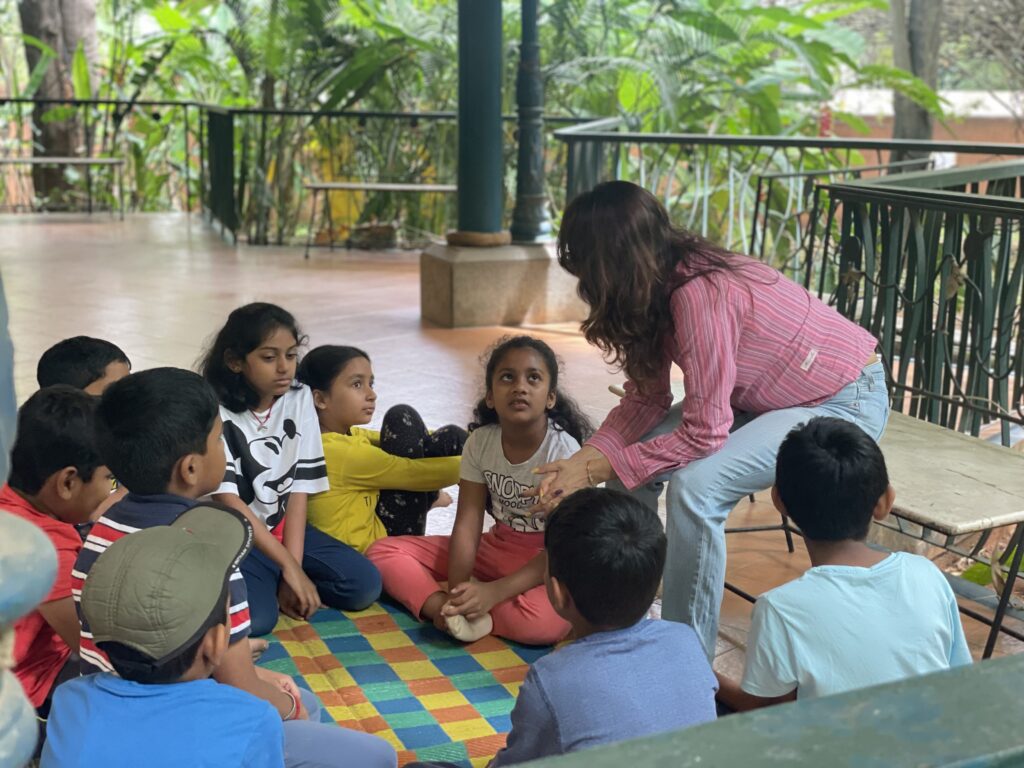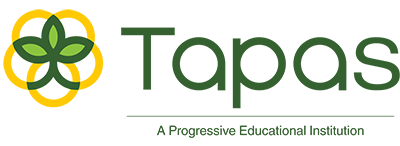Student success is more than academic achievements; it encompasses holistic growth. At the heart of this journey lies pedagogical direction, a compass guiding educators to empower learners effectively. The integration of a project-based learning curriculum, coupled with nature-based education, forms a dynamic approach. This amalgamation propels students to explore, inquire, and collaborate while embracing the natural world. As we delve into the transformative realms of this educational synergy, we uncover how these methodologies harmoniously mold future leaders, equipping them with skills, values, and perspectives crucial for their success in an evolving global landscape.
Pedagogical direction encompasses the deliberate crafting of instructional strategies to optimize learning. In India’s first 100% project-based learning school, Tapas Education, educators orchestrate dynamic approaches that revolve around real-world challenges. They facilitate inquiry-based learning, critical discussions, and hands-on exploration. This direction extends beyond content delivery, focusing on cultivating skills like collaboration and innovation. Educators become architects of engaging learning experiences, shaping students into proactive learners. Their role transcends traditional instruction; they become mentors, collaborators, and catalysts, fostering a vibrant educational ecosystem that nurtures students’ holistic growth.
Project-Based Learning Unveiled
Project-based learning (PBL) is an innovative educational approach embraced by India’s first 100% project-based learning school, Tapas. It places students at the helm of their learning journey, immersing them in real-world projects. This student-centered methodology fosters active exploration, critical thinking, and problem-solving, amplifying engagement and relevance.
PBL resonates with contemporary educational philosophies that champion experiential learning and personalized development. As witnessed in the project-based learning with Tapas, this pedagogical approach aligns seamlessly with constructivism and inquiry-based learning, fostering deep understanding and skill acquisition. By intertwining knowledge acquisition with practical application, PBL bridges theory and practice, empowering students for success in a rapidly evolving world.
Benefits of PBL for Students:
- Enhances critical thinking skills.
- Promotes effective problem-solving abilities.
- Cultivates collaborative teamwork aptitude.
Fostering Deeper Understanding Through PBL

Project-based learning with Tapas goes beyond traditional education, fostering a profound grasp of concepts. Through hands-on projects, students engage in active exploration, enabling them to understand complex subjects deeply. This approach nurtures skills that seamlessly transition to real-world scenarios, preparing students for life beyond the classroom.
Project-based learning (PBL) cultivates essential life skills like communication, adaptability, and resilience, nurturing holistic student success that extends beyond academic prowess.
Here are a few illustrative instances of skill sets that learners can cultivate through PBL projects:
| PBL Task | Relevant Skill Set/Career |
| Designing a Sustainable City | Critical thinking, Urban Planning |
| Creating a Marketing Campaign | Communication, Marketing |
| Building a Solar-Powered Device | Problem-Solving, Renewable Energy |
| Organizing a Community Health Fair | Collaboration, Healthcare |
| Developing a Mobile App | Technology, App Development |
Educators within PBL frameworks act as facilitators, guiding students to explore, question, and innovate. They create a dynamic environment that encourages curiosity and risk-taking. This supportive atmosphere fosters creativity and resilience, enabling students to thrive as they navigate complex challenges, and reinforcing the transformative impact of project-based learning.
Enhancing Creativity and Independence
PBL empowers students to embrace their creativity, encouraging them to explore unique solutions and alternative perspectives. This student-driven approach fosters independence, enhancing their ability to tackle complex problems with ingenuity and confidence.
“PBL projects equip students with the skills to think outside the box, as they learn to approach challenges with creativity and a penchant for exploring novel solutions and diverse viewpoints.”
Here are a few examples of the same:
- Designing Sustainable Cities: Tasking students to create a sustainable city encourages them to think outside the box, considering eco-friendly infrastructure and resource management.
- Inventing Novel Gadgets: Challenging students to devise new gadgets prompts inventive ideas and solutions, sparking their innovative thinking.
- Exploring Alternative Energy Sources: Assigning a project on finding alternative energy sources pushes students to explore innovative ways to harness renewable energy.
- Social Impact Campaigns: Encouraging students to design campaigns for social issues stimulates their creative problem-solving, fostering innovative strategies for positive change.
Implementing PBL, like India’s first 100% project-based learning school, Tapas, faces challenges in maintaining consistent student engagement. Educators can tackle this by designing projects with real-world relevance, fostering curiosity and motivation. Clear project goals, regular feedback, and peer collaboration sustain engagement. Creating a supportive learning environment that encourages risk-taking and celebrates diverse solutions also enhances the PBL experience. By adapting projects to student interests and integrating technology for interactive elements, educators can overcome challenges and ensure that PBL remains a transformative and impactful learning approach.
Parental Engagement
Parents play a vital role in PBL-driven education by fostering a conducive learning environment, encouraging curiosity, and collaborating with educators to enrich their child’s learning journey.
- Orientation Sessions: Conduct workshops to familiarize parents with the PBL approach, its benefits, and their role in supporting their child’s learning.
- Open House Showcases: Organize events where students present their projects to parents, fostering a deeper understanding of their learning experiences.
- Collaborative Projects: Involve parents in specific projects where their expertise can contribute to students’ learning, enhancing real-world relevance.
- Feedback Loop: Establish channels for parents to provide input on project ideas, helping tailor projects to align with students’ interests and parents’ expertise.
- Online Platforms: Utilize digital platforms for parents to track their child’s progress, engage in discussions, and offer support throughout the PBL process.
Measuring Student Success
Educators evaluate student success in PBL by assessing their ability to collaborate, think critically, and apply knowledge in authentic contexts. Formative assessment methods, integral to Project-based learning with Tapas, go beyond conventional tests. These methods include presentations, portfolios, peer evaluations, and self-assessments, providing a holistic view of students’ skills, knowledge, and growth. Such diverse assessments align with the multifaceted nature of PBL, reflecting students’ ability to not only grasp content but also demonstrate practical application and adaptability in real-world scenarios.
Project-based learning cultivates 21st-century skills, such as critical thinking, communication, and collaboration, aligning perfectly with the demands of the evolving job market. By engaging in real-world projects, students develop practical problem-solving abilities and adaptability. This experiential approach bridges the gap between classroom learning and real-life challenges, ensuring students are well-prepared for higher education and future careers. The skills honed through PBL empower students to excel in diverse academic pursuits and thrive in a dynamic professional landscape, emphasizing the direct connection between Project-based learning with https://tapaseducation.com/ and their readiness for the future.
Conclusion
Project-based learning with Tapas, India’s first 100% project-based learning school, revolutionizes pedagogical direction, fostering holistic student success. By embracing PBL, educators, parents, and institutions can unleash the potential of student minds, nurturing critical thinking, collaboration, and adaptability. To harness the power of PBL is to pave the way for empowered learners who flourish in academia and beyond. Explore this transformative journey at Tapas Education and embark on a pathway to shaping visionary, innovative, and capable individuals.

